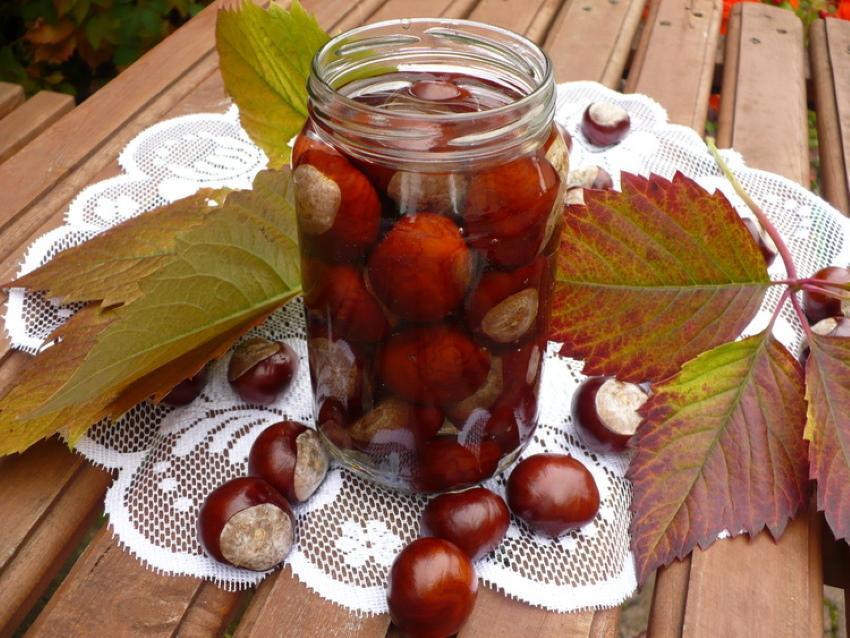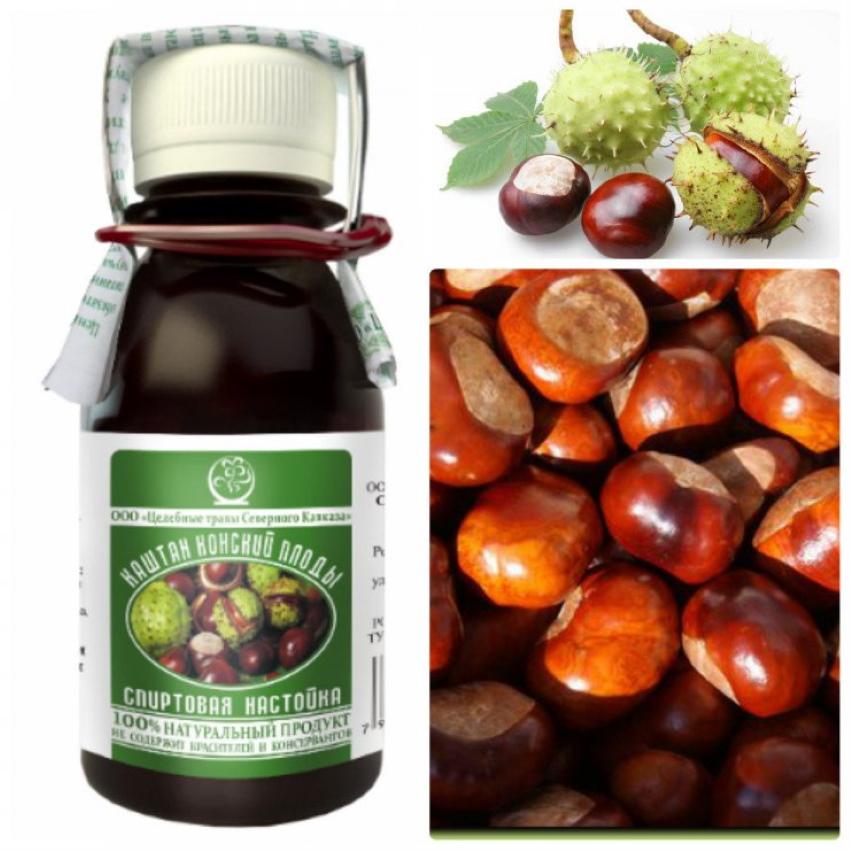Chestnut tincture - medicinal properties and contraindications of a magic remedy
 Chestnut tincture, the medicinal properties and contraindications of which have long been known, is a universal remedy for many diseases. It gives a special effect in the treatment of vascular diseases. Ointments and creams are made on the basis of horse chestnut. But it is the tincture that is considered the most effective. You can also buy it at the pharmacy, or you can go the other way and make a homemade tincture from the fruits. Such a remedy will fully replace a pharmacy preparation, because it has a number of useful properties. In addition, tincture can heal not only blood vessels, but also many other problems.
Chestnut tincture, the medicinal properties and contraindications of which have long been known, is a universal remedy for many diseases. It gives a special effect in the treatment of vascular diseases. Ointments and creams are made on the basis of horse chestnut. But it is the tincture that is considered the most effective. You can also buy it at the pharmacy, or you can go the other way and make a homemade tincture from the fruits. Such a remedy will fully replace a pharmacy preparation, because it has a number of useful properties. In addition, tincture can heal not only blood vessels, but also many other problems.
Chestnut tincture - medicinal properties and contraindications

Chestnut tincture has a healing effect on the body, namely:
- Stimulates metabolism.
- Strengthens the walls of blood vessels and capillaries.
- Reduces cholesterol levels, blood pressure and blood viscosity.
- Strengthens the nervous system.
- Slows down the aging process.
- Promotes cell regeneration.
- Relieves inflammation and swelling.
In what cases it is not recommended or prohibited to use the tincture
 The main contraindications are due to the effect of chestnut tincture on the body. In particular, this concerns its properties to lower blood pressure and promote blood thinning.
The main contraindications are due to the effect of chestnut tincture on the body. In particular, this concerns its properties to lower blood pressure and promote blood thinning.
In this regard, such a drug cannot be used if you have the following health problems:
- hypotension;
- low blood clotting;
- profuse menstruation.
It is also not recommended to take the remedy for acute hypocidal gastritis and atonic constipation. Such treatment can have side effects and worsen the condition.
You can not use tincture, especially alcohol, pregnant women and children under 16 years old.
What diseases will chestnut tincture help?
 Homemade or store-bought tincture of chestnut fruit is used to treat:
Homemade or store-bought tincture of chestnut fruit is used to treat:
- problems in gynecology (mastopathy, erosion, fibrioma);
- vascular diseases (varicose veins, thrombosis, thrombophlebitis, venostasis);
- gastrointestinal diseases (cholecystitis, gastritis);
- joint diseases (arthrosis, arthritis, rheumatism);
- hemorrhoids;
- tuberculosis;
- oncology (as an aid).